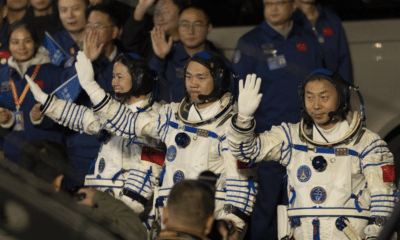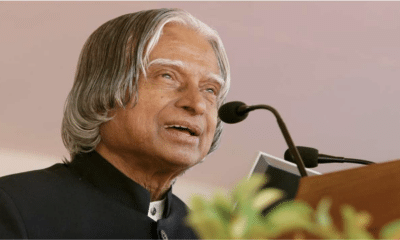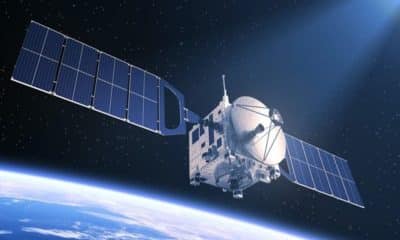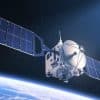Opinion
World must see science as a global unifier, not for military strength
Science has been the cornerstone of civilization since the dawn of reason-based discourse. From its earliest days, it has shaped our understanding of the world and enabled us to make sense of the complexities around us. As science has progressed, so has our collective consciousness and sense of global modernity. We live in an era where scientific progress is accelerating exponentially, revealing previously unimaginable truths. This rapid advancement has brought a new set of challenges for society to grapple with as we strive to integrate science into our civilizational dynamics.
Integrating science into civilizational dynamics is a complex process that requires thoughtful consideration on multiple levels. On the one hand, there needs to be a cultural dialogue about how science can improve social conditions and create positive societal change. On the other hand, careful thought must be given to how scientific governance should be structured to ensure equitable access and utilization of resources while protecting against potential misuse or abuse. Finally, consideration must be given to how best to position science within society so that it can continue to thrive and contribute meaningfully towards human progress. Only through such thoughtful integration will we truly unlock the potential of science as a tool for advancing humanity’s collective well-being.
The connection between science and society is essential to global civilizational development. As technology has become more accessible to people worldwide, it has enabled a democratization of our shared habitation on the planet. This democratization has allowed for a franchise of scientific and technological advancements transcending power and privilege dominations, making them available to all users. However, while we live in a world where pre-modern, modern, and post-modern eras exist simultaneously, there is still a need for better frameworks to develop cohesion among these different eras and resolve discord. To achieve this goal, it is necessary to establish a sustained dialogue through discursivity so that discourse can continue.
To facilitate this process, social evolution must consider the importance of scientific progress and utilize technological advancements for utilitarian purposes. It is also important to recognize cultural diplomacy’s role in encouraging science through various social engagement programs. By doing so, we can ensure that everyone has access to the same opportunities regardless of their power or privilege status. Ultimately, this will help create a more equitable global environment where all people can benefit from scientific advances without discrimination or exclusion.
The global experience of science has both its advantages and disadvantages in the realm of public discourse. The advent of the information age further complicates the age-old debate about intellectual narrative in public discourse. Despite being intertwined, science and society often find themselves at odds with one another, creating a need for effective dialogue to bridge this gap. As we move forward from our collective memory of the global scientific experience and our vision for it, we must make decisions within the human institutions that govern us. Navigating these institutions is a challenge that can only be addressed through global dialogue.
The current pandemic has highlighted just how complex some of the questions asked of science are, as well as how quickly answers are needed to save lives. We are now asking more fundamental questions with unprecedented rigour and precision, making it increasingly difficult for scientists to meet expectations. Science is now judged on its consequences rather than its intentions, leaving no room for error or misinterpretation. There is no other world waiting for us; dialogue and diplomacy are our only hope for creating a better future.
Science is an integral part of society, and to break down any lingering prejudices, it must be placed into a social environment that allows for public scrutiny. Any scientific or technological advancement that does not benefit the last user should not be considered part of the global welfarist enterprise; instead, it is necessary to focus on innovation which leads to economic growth. To achieve this goal, collaborative and shared incubation centres can be used to maximize the STI capacity of participating institutions. Furthermore, international science diplomacy could be bolstered by encouraging entrepreneurial skills and creating opportunities for mentorship for science and technology-based ventures. This would help ensure that all advancements benefit those who use them most while also providing a platform for collaboration between different nations. Doing so can create an environment where everyone can access the latest scientific knowledge and technology without prejudice or discrimination.
Science and culture are inextricably linked strands of global civilization. Cultural discourse is essential to understanding who we are as a nation, our identities, societal roles, and diplomatic relations with other countries. Scientific discourse is integral to advancing development, creating policy frameworks, ensuring security, and building expertise on an international level. For centuries these two entities have been kept separate from one another without any real benefit for either side. To make science part of everyday life worldwide, it is necessary to foster a global cultural dialogue between them both. Bringing scientific and cultural discourse closer together will help create an intellectual narrative that can be used to shape the future of our world while also inventing its own unique cultural identity.
Over the past three decades, we have seen a remarkable shift in attitudes towards environmental responsibility. This has been driven by an increased awareness of our need to be more mindful of nature and its resources, as well as a greater sense of responsibility among current generations to shape the future of the environment. To this end, global initiatives have been launched that promote green and renewable technologies, with the aim of creating an encouraging ecosystem that supports these environmentally responsible solutions.
In order to ensure success in this endeavour, it is essential that a shared platform is created which allows for collaboration between institutions across the world. Through such collaborations, pilots can be conducted, providing valuable insights into global economics and technological adaptability. Furthermore, a framework needs to be established which encourages innovative research into environmentally responsible technology so that new solutions can continue to emerge.
Ultimately, by providing support for green and renewable technologies through collaborative platforms and research frameworks, we can create an environment where environmentally responsible solutions are embraced on a global scale. This will not only benefit us now but also ensure that future generations are able to enjoy a healthier planet for many years to come.
In many parts of the world, energy poverty is a major issue. This means that people lack access to reliable and affordable sources of energy, which can lead to serious consequences in terms of economic development, health, education and quality of life. To address this problem, there is a need for novel technologies to be developed in academia across the globe. By creating a common sharing space for research and encouraging openness in intellectual property (IP) and technology transfer, it would be possible to tackle energy poverty more effectively. Furthermore, this could create more opportunities for clean energy solutions, which would help reduce the effects of climate change on our planet.
The potential benefits from increased access to clean energy are immense; not only would it improve living standards, but it also provides an opportunity for economic growth by allowing businesses to operate more efficiently with lower costs. It could also reduce air pollution levels and greenhouse gas emissions which contribute significantly towards global warming. Additionally, it could help alleviate some of the strain on existing resources, such as water or land use, due to reduced demand from traditional power plants or other industries reliant on fossil fuels. All these factors combined make tackling energy poverty an important part of addressing climate change at large.
In this day and age, science is no longer a tool that can be used to increase military power. Instead, it has become a way of bringing peace both domestically and internationally. Science provides an impartial platform for conversation between nations, allowing them to come together without the need for militarization or sanctions. It also ensures safety without having to resort to aggressive tactics such as border enforcement or economic punishments. By utilizing science in this manner, we can create a world where nations are able to communicate with each other in order to reach resolutions without violence or hostility. This not only helps bring about peace but also creates an environment of security that does not rely on the use of force or fear tactics. Furthermore, by using science in this way, we can ensure that our borders remain safe while still allowing for open dialogue between countries and cultures.
In the modern age, science has become a unifying force. It has been proven to be effective and inclusive, as it engages in dialogue with all possible pathways involved in the mechanism of arriving at a theory. Logic is irrefutable, and if challenged, there are well-defined consequences. Despite this, there has been an unusual rise in irrational and unsubstantiated ideas being debated publicly, which have caused friction among different factions of social and intellectual hegemony.
This tension between logic and irrationality can be seen throughout our society today. However, despite these frictions, the new modernity of our age continues to emerge and advance. Science provides us with an opportunity to bridge the gap between these two sides by providing us with a logical framework for understanding how things work while also allowing for open dialogue about different opinions on any given topic. By utilizing science as a unifying force, we can create an environment where everyone’s voice is heard without judgement or prejudice so that we can come together to solve difficult problems facing our world today.
Pranav Sharma is a science historian. He lives and writes from New Delhi.
Disclaimer: The views and opinions expressed in this article are those of the authors and do not necessarily reflect the official policy or position of the publication










































